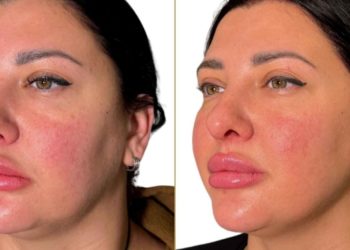The landscape of cannabis medicine in the UK is evolving, beckoning patients and healthcare providers to adapt to the new realms opened by medical cannabis guidance. As the legal framework adjusts to accommodate the medical potential of cannabis, understanding UK cannabis regulation becomes vital for those considering or prescribing these treatments. This article will illuminate the pathway through which individuals can navigate the cannabis prescription process, providing a cornerstone for those seeking to comprehend the intricacies of access to cannabis-based therapies.
Embarking on the journey of cannabis treatment is not without its complexities. By demystifying the process and providing clear insights into the steps involved, patients can make informed decisions underpinned by a comprehensive knowledge of UK-specific protocols. This article serves as your guide through the shifting tides of medical cannabis utilisation, setting the stage for an informed exploration into the promising yet regulated world of cannabis therapy within the UK.
The Legal Landscape of Cannabis Treatment in the UK
The UK cannabis laws have evolved notably in recent years, particularly with changes pertinent to cannabis treatment legality and medical cannabis licensing. Understanding the legalities that govern such treatments is crucial for both healthcare practitioners and patients alike. The Misuse of Drugs Act serves as the cornerstone legislation, yet recent amendments have been significant, notably the 2018 rescheduling of cannabis-based products for medicinal use. This enabled doctors on the General Medical Council’s specialist register to prescribe these products legally.
Medical cannabis licensing is strictly regulated by the Home Office, which considers applications for licenses to grow and distribute cannabis for medicinal use legally. Below is an elucidation of the key legal steps required:
- Application for a license to cultivate cannabis for medical use submitted to the Home Office.
- Thorough security measures and cultivation plans must be in place to gain approval.
- Applications are reviewed in context of potential research benefits and patient needs.
- Strict compliance with the regulations is monitored by the Medicines and Healthcare products Regulatory Agency (MHRA).
The impact of regulation is substantial. Healthcare providers must navigate a complex landscape of legal requirements to offer cannabis-based treatments. Patients seeking medical cannabis must be under the care of a specialist with the ability to prescribe it, typically for conditions where other treatments have failed.
| Regulatory Body | Scope of Oversight | Impact on Treatment Access |
| Home Office | Licensing for cultivation and distribution | Limits supply to licensed providers only |
| MHRA | Assessment of cannabis-based product safety and efficacy | Ensures patient access to approved treatments |
| NHS Bodies | Guidance and funding decisions on medicinal cannabis | Influences availability on NHS prescriptions |
While these regulations serve to protect patient safety, they also present challenges, making the process for obtaining a legal prescription for cannabis treatment multifaceted and precise. Legal guidance is therefore an indispensable resource, enabling the structured and lawful provision of cannabis-based medical treatments within the UK.
Obtaining a Cannabis Prescription: What Patients Need to Know
Securing a medical cannabis prescription in the UK requires patients to navigate a set of defined eligibility and assessment procedures. To commence the prescribing process, a consultation with a General Practitioner (GP) or a specialist in the relevant medical field is essential. The primary responsibility of these healthcare professionals is to evaluate the patient’s condition against the UK cannabis patient criteria to gauge suitability for cannabis-based treatment.
Following this preliminary consultation, patients who are considered likely to benefit from medical cannabis will be referred to specialist cannabis clinics for further evaluation. At this juncture, the healthcare professional will review the patient’s medical history and the efficacy of existing treatments before deciding on the appropriateness of a cannabis prescription.
An important aspect to consider is the documentation required during the prescribing process. Patients must be ready to provide comprehensive medical records, as well as a list of previous and current medications, to ensure a thorough review. To gain further understanding of these prerequisites, authoritative health organizations and patient advocacy groups provide guidance that is particularly beneficial for individuals embarking on this journey.
- Initial eligibility assessment with a GP or specialist.
- Detailed medical history review and documentation.
- Consideration of previous treatments and their effectiveness.
- Referral to accredited specialist consultation if applicable.
- Final evaluation against UK cannabis patient criteria.
- Acquisition of medical cannabis prescription when appropriate.
However, it is pivotal to note that medical cannabis is not a one-size-fits-all remedy and is generally reserved for cases where conventional treatments have not yielded the desired results. Specified conditions that may qualify for cannabis-based interventions include, but are not limited to, severe epilepsy, chemotherapy-induced nausea, and chronic pain conditions. A meticulous approach by healthcare professionals ensures that the prescription of such medicines is judicious and tailored to individual patient needs.
To sum up, understanding the medical cannabis prescription requirements within the UK’s regulated framework is imperative for patients. Getting familiarised with the UK cannabis patient criteria and the necessary prescribing process can significantly streamline the path to accessing this form of treatment, enabling patients to make informed decisions about their healthcare options.
Exploring Cannabis Clinics in the UK
The pathway to patient access to medical cannabis in the UK often leads through specialised facilities committed to the provision and management of cannabis-based treatments. These accredited cannabis clinics offer a beacon of hope for patients seeking alternative avenues of care. With the aim of informing potential service users, this guide weaves through a collection of UK’s top-notch clinics, offering a snapshot of the services provided by each establishment and the experts behind the scenes.
UK medical cannabis specialists operate within a realm that commands a robust understanding of both the regulatory landscape and clinical efficacy. At these clinics, patients have the opportunity to engage with consultants who have honed their expertise over years of pioneering research and patient care, ensuring credible and comprehensive treatment plans.
| Clinic Name | Specialisations | Location(s) | Consultation Approach |
| The London Cannabis Clinic | Chronic Pain, Neurology, Psychiatry | London | Personalised, Multi-Disciplinary |
| CannaCare Health | Epilepsy, MS, GI Disorders | Manchester, Leeds | Integrated Healthcare |
| Greenlight Medicines | Palliative Care, Oncology | Belfast | Compassionate Use Programmes |
| Sapphire Medical Clinics | Paediatrics, Pain Management | Glasgow, Bristol, Cambridge | Evidence-Based Protocols |
Clinics like these, while diverse in their geographic footprint and clinical focus, share the common goal of widening patient access to cannabis treatments. By fostering a supportive and enlightening environment, these centres are pivotal in the patient journey, offering not just medical interventions, but the promise of a life reclaimed from the clutches of persistent ailments.
- First-Hand Accounts: Patients regularly acclaim the empathetic and patient-centred care they receive at these clinics, often highlighting their experiences as transformative.
- Range of Services: The array of treatments provided covers a spectrum from consultations and prescriptions to follow-up care and educational resources.
- Specialist Accessibility: Ensuring specialists are approachable and available for patient engagement is a hallmark of these clinics’ service philosophy.
As we continue to explore the evolving landscape of medical cannabis in the UK, it becomes increasingly apparent that these accredited cannabis clinics play a crucial role in not only setting standards for patient care but also in advancing the conversation around the integration of cannabis therapies within mainstream medicine.
A Guide to Cannabis Products and Their Uses
For those navigating the ever-expanding world of medicinal cannabis products, understanding the distinction between THC and CBD formulations is vital to selecting an appropriate treatment. This section explores the spectrum of cannabis-based therapies, their intended applications, and the nuances of cannabis product efficacy.
- THC treatments are known for their psychoactive effects and are typically prescribed for conditions such as chronic pain, muscular spasticity, and glaucoma. They may also enhance appetite and decrease nausea in patients undergoing chemotherapy.
- CBD treatments, on the other hand, do not induce psychoactive effects and are increasingly favoured for conditions like epilepsy, anxiety disorders, and inflammatory diseases due to their analgesic and anti-inflammatory properties.
The intricacies of these treatments are further elucidated through scientific studies that scrutinise cannabis product efficacy, highlighting the interplay of cannabinoids with the human endocannabinoid system. Additionally, data regarding pharmaceutical quality and potential side effects is continually being updated, providing a clearer picture for healthcare professionals and patients alike.
| Product | Primary Cannabinoid | Common Uses | Efficacy Highlights | Potential Side Effects |
| Sativex® | THC & CBD | Multiple Sclerosis spasticity | Reduces muscle stiffness and spasms | Dizziness, fatigue, oral discomfort |
| Epidyolex® | CBD | Epilepsy (specific syndromes) | Shown to significantly reduce seizure frequency | Diarrhoea, somnolence, decreased appetite |
| Nabilone | Synthetic THC | Chemotherapy-induced nausea and vomiting | Useful when other treatments are ineffective | Euphoria, dry mouth, tachycardia |
Incorporating input from pharmacologists, we understand that individual response to medicinal cannabis products can vary widely, necessitating personalized dosage and careful monitoring. Patient testimonials further underline the importance of a patient-centred approach, emphasising the variability in effectiveness and tolerability of different treatments. As research continues to advance, these testimonies and scientific findings will play an increasingly crucial role in guiding the future of THC and CBD treatments in the UK.
Personal Stories: The Impact of Cannabis Treatment on Patients’ Lives
When considering the value of cannabis treatments, the power of patient experiences cannot be overstated. These firsthand accounts provide an invaluable context for what can otherwise be clinical statistics on cannabis treatment outcomes. Below are structured insights into several real-life cannabis stories, offering a true-to-life perspective on the transformative nature of cannabis therapies.
- Many patients report an overall improvement in quality of life, citing a reduction in symptoms such as chronic pain, which in turn can lead to better mobility and increased daily activity.
- Some individuals note the psychological benefits, including lowered anxiety levels and improved sleep patterns, both of which contribute significantly to their day-to-day well-being.
- Parents of young patients with epilepsy have shared moving stories of witnessing fewer seizures in their children, owing to specific cannabis-based treatments designed to manage such conditions.
- Elderly patients, often facing multiple health issues, recount instances of cannabis use leading to decreased reliance on traditional painkillers and an improved sense of autonomy.
These anecdotes serve to underscore the complexity and individual nature of each treatment journey. Below, a detailed table further demonstrates the varied cannabis treatment outcomes reported by a cross-section of patients:
| Condition | Treatment Duration | Reported Benefits | Challenges Reported |
| Chronic Pain | 6 months | Reduced pain, improved daily function | Initial dosage adjustment period |
| Anxiety | 3 months | Drops in anxiety levels, better sleep | Finding the right strain |
| Epilepsy | 1 year | Decrease in seizure frequency | Cost and access to specific cannabis products |
| Multiple conditions (in elderly patients) | 8 months | Reduced need for traditional medication | Adapting to product forms & administration |
It’s clear from these real-life cannabis stories that while there are challenges, the potential for positive cannabis treatment outcomes is significant. This reflects a growing body of anecdotal evidence that, when combined with scientific research, helps to inform potential patients and their healthcare providers about the plausible benefits and considerations of incorporating cannabis into their treatment plans. Taken together, these patient experiences constitute a vital component of understanding the implications of cannabis legalisation on individual lives and society as a whole.
Conclusion
As we embrace the close of our exploration into the burgeoning realm of cannabis treatment within the UK, it is imperative to acknowledge the steady progression towards safe cannabis treatment and the remarkable UK cannabis medical advancements. The commitment to ensuring regulated access is a cornerstone in safeguarding patients and fostering a regulated environment in which cannabis therapy can thrive.
A pivotal aspect of this commitment is the careful harnessing of scientific progress relating to the future of cannabis therapy. It is within these research efforts and clinical trials that the potential for groundbreaking treatments lies. The UK, with its rich history in medical innovation, stands at the forefront of these developments, poised to integrate new findings into existing treatment paradigms.
- Anticipated regulatory changes ensuring higher safety protocols
- Emerging research around cannabinoid pharmacology
- Advances in genetic profiling of cannabis strains for specific conditions
Furthermore, the integration of cannabis into medical practice is gaining impetus through educational endeavours among healthcare professionals. This is amplifying understanding and acceptance of cannabis-based therapies in the medical community. To encapsulate the strides made thus far:
| Aspect | Current Status | Future Considerations |
| Regulatory Environment | Scheduled but permissible under prescription | Potential expansion of qualifying conditions |
| Research and Development | Ongoing clinical trials for efficacy and safety | Advancements in personalised treatment approaches |
| Healthcare Integration | Growing acceptance and knowledge among practitioners | Continued education and broader specialist training |
| Patient Access | Limited to certain conditions and via specialist recommendation | Improvement in accessibility and insurance coverage |
In conclusion, the horizon for patients seeking cannabis treatment in the UK is one of optimism, with safety and scientific rigour at its helm. As UK cannabis medical advancements unfold, the dialogue surrounding cannabis therapy continues to evolve, promising an inclusive and well-informed future for all stakeholders.
Resources and Further Reading
For individuals seeking to deepen their understanding of cannabis therapy within the UK landscape, a wealth of additional cannabis resources is available. Discerning readers may wish to explore key cannabis research studies that shed light on the latest findings in the medical community. These studies not only discuss the efficacy and safety profiles of varying cannabis-based treatments but also provide crucial insights into continuing clinical trials and evolving therapeutic practices.
Furthermore, comprehensive UK cannabis guidance can be found through authoritative health entities such as the National Health Service (NHS) and the Medicines and Healthcare products Regulatory Agency (MHRA). These documents are invaluable for patients and healthcare professionals alike, presenting vetted information on the prescription process, dosage regulations, and quality standards for cannabis-based medicinal products. This guidance ensures that both the curative potential and legal stipulations of cannabis use are navigable with clarity.
In supplementing one’s knowledge, there exists a multitude of educational materials crafted by patient advocacy groups, scholarly articles published in medical journals, and policy outlines devised by governmental health departments. These form a collective repository of knowledge, equipping individuals with the means to make informed decisions and participate actively in discussions regarding the future of cannabis treatment in the UK. As the discourse on medicinal cannabis continues to evolve, these resources stand as pillars of factual and scientific support for anyone wishing to explore further.
FAQ
What is the current state of medical cannabis use in the UK?
In the UK, cannabis-based products for medical use are legal under controlled conditions. The use and access are strictly regulated, and only specialist doctors can prescribe cannabis-based medicines for conditions where there is evidence of benefit.
Are there any legal restrictions on cannabis treatment in the UK?
Yes, there are legal restrictions. Only doctors listed on the Specialist Register of the General Medical Council can prescribe cannabis-based products. Moreover, it is only allowed for treatment when other options have been exhausted and if there is clear evidence of benefit.
How can a patient obtain a cannabis prescription?
Patients seeking a cannabis prescription must consult with a specialist doctor who can determine their eligibility based on pre-defined criteria. If considered appropriate, the specialist can issue a prescription for a cannabis-based medicine.
What criteria do patients need to meet to be eligible for medical cannabis treatment in the UK?
Eligibility criteria for medical cannabis treatment include the presence of a diagnosed condition that has not responded to conventional treatments, and where there is a basis to believe that cannabis could be of benefit. The decision is ultimately at the discretion of the consulting specialist.
What are accredited cannabis clinics?
Accredited cannabis clinics are healthcare facilities that have the necessary licensing and professional staff to prescribe and provide guidance on cannabis-based treatments. These clinics adhere to UK cannabis regulation and have medical professionals who specialise in cannabis-based therapy.
How are cannabis products for medical use regulated?
In the UK, cannabis-based medicines are under the regulation of the Medicines and Healthcare products Regulatory Agency (MHRA). They require relevant licensing, quality control, and must comply with safety standards before being prescribed.
Can general practitioners (GPs) prescribe medical cannabis?
No, GPs in the UK cannot prescribe cannabis-derived medicinal products. Prescriptions must come from a specialist doctor who is on the Specialist Register of the General Medical Council.
What types of medical conditions are being treated with cannabis in the UK?
Cannabis-based products can be prescribed for conditions such as severe epilepsy, chemotherapy-induced nausea and vomiting, and muscle stiffness and spasms in multiple sclerosis. Other applications are being researched.
Where can patients find resources for further information on medical cannabis in the UK?
Patients and caregivers can consult resources from official health authorities like the NHS, reputable medical cannabis clinics, patient advocacy groups, and research studies for more detailed information on medical cannabis therapy.
What does the future of cannabis treatment look like in the UK?
The future of cannabis treatment in the UK points towards incremental advancements as research continues and as practitioners gain more experience with cannabis-based medicines. This includes emerging evidence of its efficacy and safety profile, leading to potentially wider acceptance and use.
David Prior
David Prior is the editor of Today News, responsible for the overall editorial strategy. He is an NCTJ-qualified journalist with over 20 years’ experience, and is also editor of the award-winning hyperlocal news title Altrincham Today. His LinkedIn profile is here.












































































